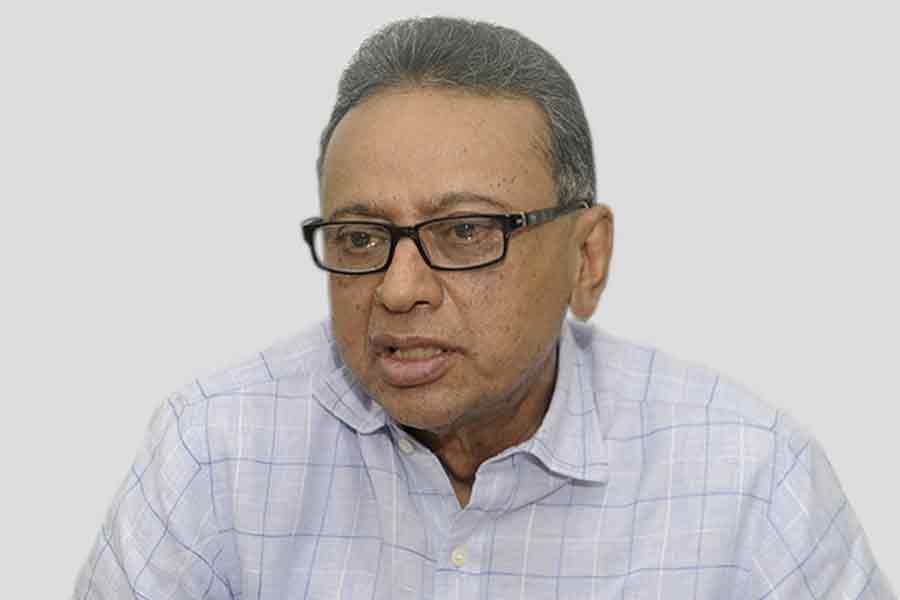

Stating that there is no provision for a referendum in the Constitution, BNP senior leader Amir Khosru Mahmud Chowdhury on Saturday urged political parties to avoid heating up the streets over the issue in order to prevent political confrontation.
“The current interim government has been formed under the existing Constitution and has taken oath in accordance with it. There is no provision for a referendum in this Constitution,” he said, UNB reports.
Speaking at a dialogue titled ‘Jonotar Ishthehar (People’s Manifesto)’ at a city hotel, the BNP leader said if political parties want to introduce a referendum, they must first obtain a public mandate through the next election, place their proposals in Parliament, and only after those proposals are passed can a referendum be held.
“We may have many desires and demands, but not all of them can be met by sitting in Dhaka and trying to reach consensus through the Consensus Commission. The only real solution is to go to the people and resolve these issues through their mandate,” he said.
Khosru, a BNP Standing Committee member, said political parties should embrace the spirit of the people’s mandate instead of imposing their ideas on others.
“Everyone has the right to protest. But the people of Bangladesh no longer want confrontational politics. They want stability. Even when there is disagreement, people want to show respect for others’ views. That culture must take root among us,” he said.
The BNP leader urged parties not to rush to the streets over the referendum issue, warning that such moves could spark violence.
“You can’t keep going out into the streets over every issue. If one group stages a protest and another group then also takes to the streets in response, what will happen? There will be clashes. If the largest party mobilises on the streets and another large group protests against them, we will see violent confrontation,” he said.
Khosru said the people of Bangladesh did not remove autocratic ruler Sheikh Hasina only to drag the country back into confrontational politics. “We must be extremely careful. There are those who may try to link such actions to attempts to disrupt or delay the election.”
Khosru said BNP initially announced a 27-point state reform proposal, which was later expanded to 31 points through consultations with 42 parties and people from all walks of life.
He said, “After publishing it, we sought public feedback nationwide and online, inviting suggestions to refine it further. People’s input is essential. Each party has its own philosophy and ideas, but no one should try to impose their views outside the agreed consensus.”
After long discussions under the Consensus Commission, political parties reached an agreement and signed a joint charter, he said, adding, “That consensus must be respected during implementation. No one can enforce their own version unilaterally.”
Khosru observed that after 15–17 years of Sheikh Hasina’s rule, an authoritarian mindset has developed, with some politicians believing only their opinions matter. “But democratic politics requires respect for differing views.”
He warned that attempts to bypass consensus or impose unilateral decisions could undermine democracy. “There is no scope to go beyond the consensus reached among political parties. If anyone wants to move beyond that, they should go to the people in the next election with their manifesto.”
Referring to the recent killing in Chattogram, Khosru said it appeared to stem from internal feuds within a student organisation, but suspected that those trying to delay or obstruct the upcoming election might be involved.
On BNP’s election preparations, he said the party’s forthcoming manifesto would focus on job creation, rural economic growth, education, healthcare, and investment reform.
“BNP has a clear plan to create 10 million jobs within 18 months. We have identified exactly where and how those jobs will be created,” he said, adding that the plan prioritises agriculture, manufacturing and services.
Khosru also pledged to invest up to 5% of GDP in education and healthcare, focusing on skills development and technology-based employment for the youth.
“We will not pursue mega projects by printing money or taking excessive loans. Our investment will focus on job creation and sustainable growth,” he said.


 For all latest news, follow The Financial Express Google News channel.
For all latest news, follow The Financial Express Google News channel.